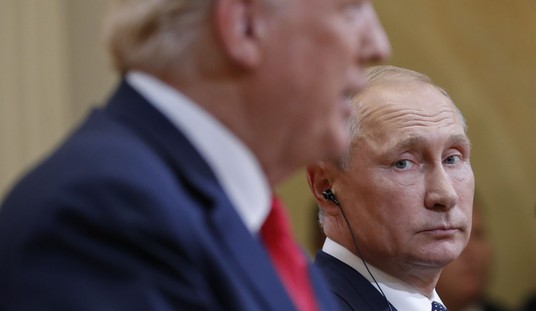Time: October 1962
Soviet Premier: Nikita Kruschev
American President: Barack Obama
Situation Report 1:
The Soviet Union is transporting by sea several batteries of operational ballistic missiles to Cuba.
High Level Meeting:
Premier Kruschev assures President Obama that the missile emplacements are intended for defensive purposes alone. He cites possible armed aggression from the Cayman Islands, a noted belligerent, as an ongoing threat to a cherished ally of the USSR and a destabilizing factor in the Caribbean.
President Obama is impressed by Kruschev’s spirit of “pragmatism” but wrings significant concessions from his Soviet counterpart to the effect that these missiles will not be pointed at the United States but at the Cayman Islands and that they will be closely monitored by Cuban officials. In return for Soviet flexibility, the American base at Guantánamo Bay will be closed immediately.
Situation Report 2:
The missiles are in place. The bulk of the Soviet fleet sails undisturbed back to home port, leaving a cruiser, several destroyers, and an undisclosed number of nuclear submarines to patrol Cuban waters. The U.S. Navy has agreed to maintain a respectable distance from the Cuban coast and American commercial aviation will avoid the area entirely. As a gesture of goodwill and to demonstrate its peaceful intentions, the United States will permit the Soviet navy to carry out reconnaissance in the Gulf of Mexico. “We have nothing to hide,” the president said.
Media Reaction:
The New York Times, the Washington Post, the Los Angeles Times, and the majority of American newspapers, as well as the major television networks, hail a strategic victory on the part of the American president, who has clearly outmaneuvered the Soviet premier while ushering in a new era of mutual cooperation between the two superpowers. This has been accomplished at no cost to American interests. As an added benefit, owing to the Soviet presence in the region, the United States can rely on its new allies to keep the Cayman Islands in check. Jamaica, too, will no longer pose a threat to the United States, thanks to Soviet alertness. As the president said, “Our Russian friends will consolidate the region for us. We have no reason to object.” The president has just dispatched his secretary of State, Hillary Clinton, to Cuba with a message of friendship and an offer to reset the relation between the two countries, on the model of the renewed accord between the U.S. and the Soviet Union. Diplomatic prospects with regimes once considered hostile have never looked better. The media continue to be impressed.
Summary:
The consensus is almost unanimous. Not only is American security in the capable hands of President Obama, but he is the peacemaker America and the world have long awaited, the man of the hour as well as of the future, and indeed, may be fairly described as a sort of god. The Republican Party is incensed and has accused Barack Obama of playing fast and loose with American interests, but the president has rightly denounced his opponents as war-happy plutocrats seeking fat military contracts.
“There are those,” he said at a recent press conference, “who place personal profit over the nation’s welfare. Let me be clear,” he continued, “America can afford to be generous. Concessions must not be interpreted as weakness.” The president has expressed the hope that with time, patience, and effective diplomacy, ICBMs will be decommissioned and the Cayman Islands will be brought into the fold of the community of nations. “We have no incentive or interest in increasing friction between the Caymans and the U.S.,” the president affirmed.
Update:
A slight change in policy. With the president’s approval, a number of the Soviet missiles will now be aimed at the state of Florida, to ensure that the expatriate Cuban population is kept in check.
[Editor’s Note: According to the German newspaper Die Welt, Iran is placing missile batteries in Venezuela, which can reach American cities. There has been no response from the U.S. government.]










Join the conversation as a VIP Member